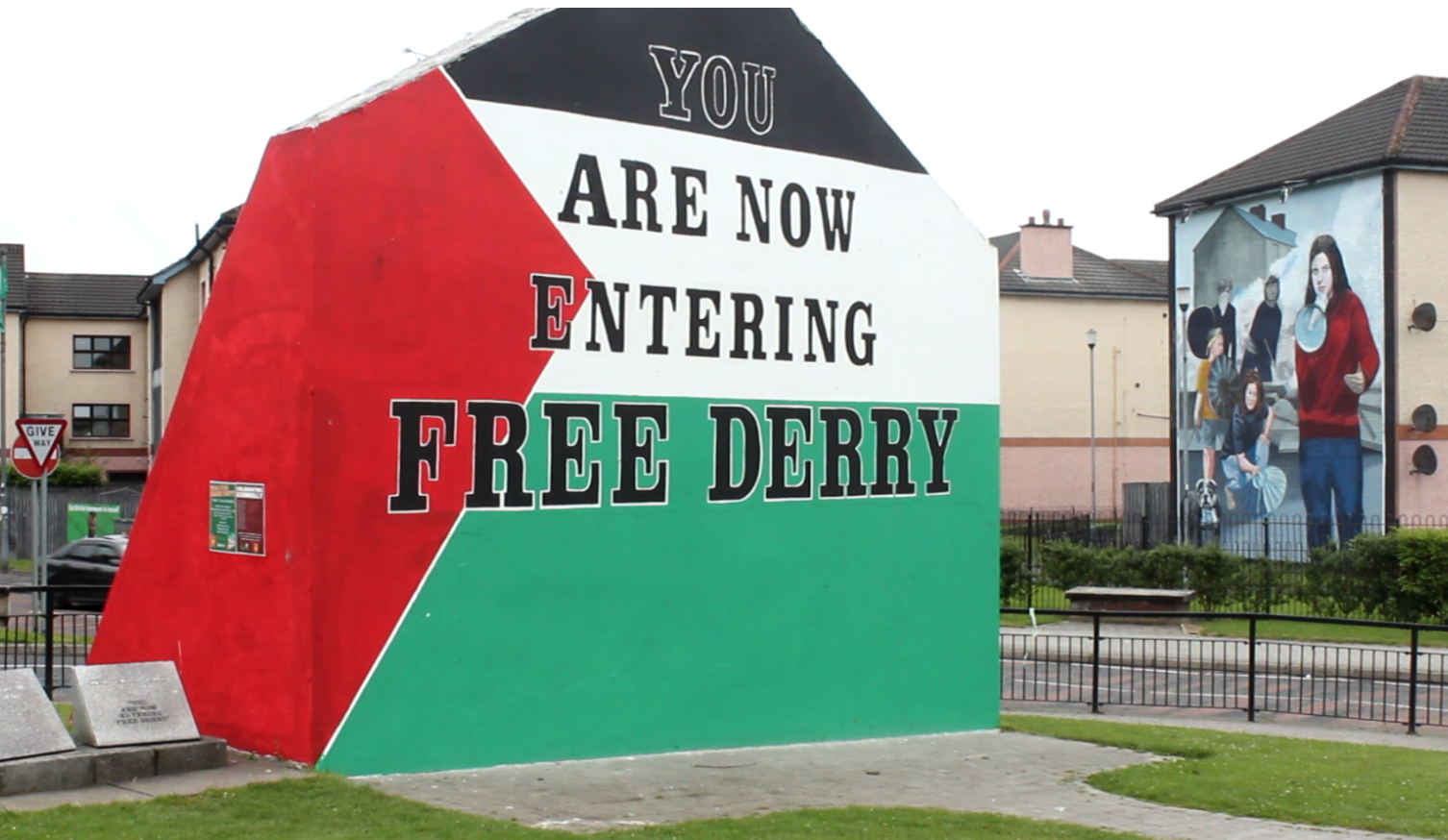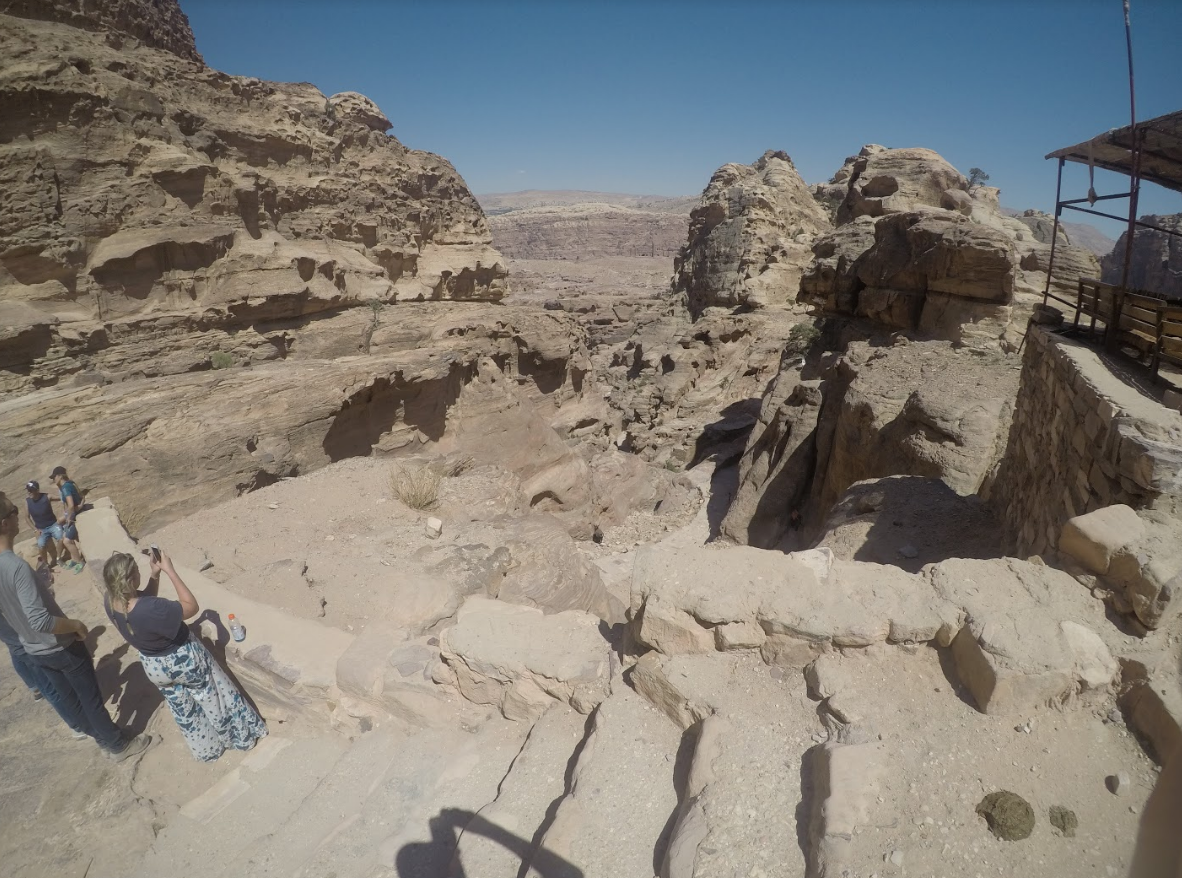A junior film major got an insider’s perspective of two cities historically entrenched with bouts of violence — Dublin, Ireland, and Amman, Jordan, — during a 10-week study-abroad program about the roots of conflict and subsequent peace processes.
After three classes totaling 19 credits, Brian McCann not only acquired new outlooks on the countries and their peacetime affairs, but was also inspired from an artistic standpoint.
“People can get fresh perspectives out of this and new ideas,” he said.
The first phase of the program, which took McCann to Dublin, explored the ethno-nationalist conflict in Northern Ireland during the late 20th century, a period known as The Troubles. The resolution of the conflict has yielded lasting lessons in peace, although tensions — characterized by Ireland’s departure from its former British rule — are still apparent in the country today, according to McCann.
The course he took in Dublin examined prominent issues in contemporary conflict resolution and was taught by a man who had personally endured The Troubles.
“He was involved intimately in everything that was going on,” McCann explained. “You got to see the whole kit and caboodle from somebody who had been through it.”
In Dublin, McCann said he got to witness a variety of sites that were important to the formation of the Irish Republic, including the Kilmainham Gaol, where many Irish revolutionaries were imprisoned, and the Glasnevin Cemetery, where many of these same figures rest today. However, as part of the program, he also ventured outside the capital city into Derry and Belfast in Northern Ireland, which is part of the United Kingdom, since these two places are closely associated with the most contentious parts of Irish history.
The most personalized perspective of conflict he was exposed to was during the class visit to Derry, which is where the Bloody Sunday Massacre of 1972 occurred, in which British soldiers shot unarmed civilians during a peaceful protest. They visited the Free Derry Museum and had discussions with its curators, who are direct family members of those who died in the massacre.
Near the museum sits a landmark, the Free Derry Corner: a wall that not only recognizes the country’s conflict-ridden history, but other global conflicts as well. During McCann’s visit it was painted with the Palestinian flag — a mere coincidence that underscored the connectedness of these seemingly different conflicts and this particular study abroad program.
“That just blew my mind because we were about to go learn about that,” he said.

McCann said his exposure to The Troubles made him think about how we can change global dialogues about conflict. He explained that while it gave him a new perspective on extremism, it also showed the value of compromise, which, he said, is sometimes overlooked in modern-day conflicts.
The second phase of the program explored conflict resolution and management, focusing on case studies across the Middle Eastern region from the lens of Jordan, a neighbor to the conflict between Israel and Palestine.
“I didn’t know much about the Israeli-Palestinian conflict and I figured jumping right from a country right next to the thing going on would be a good way to learn,” McCann said.
Jordan has accepted a wide number of Palestinian refugees throughout this ongoing struggle that can be traced back to Jewish immigration that first began in the early 20th century.
McCann got to interact with those who witnessed the effects of the conflict firsthand, as his class, which was about managing conflict, was taught by a former Jordanian ambassador to Israel who had worked on the peace treaty between Jordan and Israel. His homestay was also with a couple that had been forced out of Palestine.
In addition to this course, there was a third phase in which he got the opportunity to learn Arabic. Though he noted it is a particularly hard language to learn, since there are many varieties of the language, he is continuing back at Drexel.
Overall, he said the biggest takeaway from Jordan was what the thought process and rationale of terrorists in the Middle East really was.
While he yearned to learn more about Middle Eastern divergences, he was also lured by Jordan as a unique destination. He explained how he did harbor a slight fear of entering the Middle East — which changed while he was there — but he wanted to do something completely different than most study abroad programs and very away from the typical European adventure.
“It wasn’t the standard, stereotypical study abroad course where you go to Europe for two weeks and come back with an accent,” he joked.
But the fact that this program was paired with Dublin, he said, was just another seller — since he didn’t know much about Irish history either. He now has a better understanding of these historical issues and he said his exposure to these dynamic conflicts has also inspired him artistically.
“It’s definitely something I’ve drawn inspiration from,” he said.
The landscape of Amman and its unique layout was particularly moving, he said, and he definitely thinks it will manifest itself within his future film projects. Two particular sites — the ancient Amman Citadel that sits in the center of the hilly, modern city and Lawrence’s Spring in Wadi Rum — left him especially in awe.

While he was inspired by the geography of Jordan, he said he was equally inspired by the history of Ireland and its story of departing from British rule may present itself in his future work.
Overall, he said he would highly recommend the program to others, especially anyone with an interest in global politics or history or who wants to see more of the world.
“The best part was the general ball-busting in terms on the perspective I had on the world since I had not travelled much before,” he said. “It was also a wake-up call of ‘you know those places you always hear about in the news? They actually exist!’”
But he said those who are considering partaking in this experience should eliminate any assumptions they might have about the two destinations and their historical conflicts.
“Go in knowing that you know nothing,” he said. “Just be ready to be very surprised, be ready to have everything you don’t expect to happen, happen, and be ready for these places to be very different from the places you imagined.”

